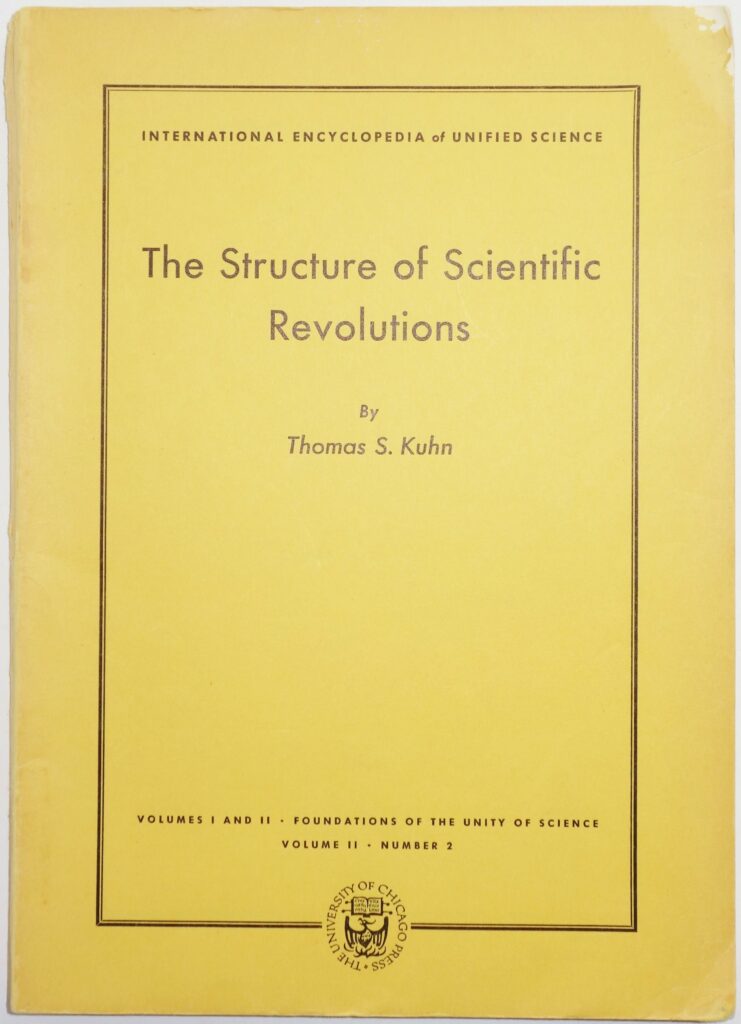
First edition, first impression, of one of the most influential books of the 20th century, and one of the most cited academic books of all time. It sold only 919 copies in 1962-3 but sales to date are around 1.5 million copies in twenty languages. Every time the overworked term “paradigm shift” is uttered, a debt is owed to this book in which Thomas Kuhn first coined it. According to the traditional Enlightenment view, the development of the natural sciences is a single linear process, gradually accumulating objective knowledge of the physical world. Kuhn’s radical challenge was to see it instead as a series of discrete episodes, each governed by its own ‘paradigm’, or set of assumptions, goals and problem-solving techniques. When too many anomalies arise within a paradigm, a ‘scientific revolution’ occurs in which a new paradigm replaces the old one; crucially, the new paradigm is incommensurable both with the old paradigm and with the future paradigm that will one day in turn replace it. This means that any claim to knowledge doesn’t even make sense outside the paradigm within which it is made, still less can it be reckoned objectively true or false. The relativism implicit in Kuhn’s theory of science has, for better or worse, become standard across many of the social sciences and in public discourse more generally.
